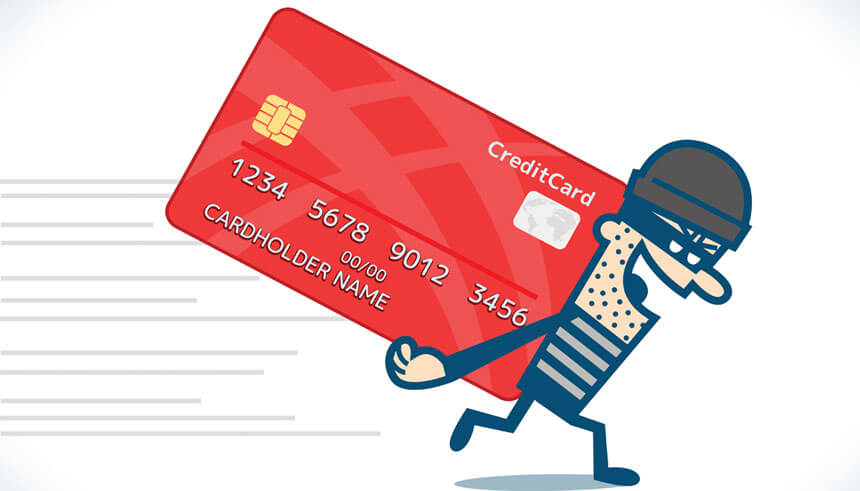Credit card fraud is a growing concern in the United States, affecting millions of consumers each year. The ease and convenience of using plastic money come with risks that every cardholder should be aware of. This blog post will guide you through the necessary steps to protect yourself from fraudulent activities and what to do if you find yourself a victim.
Anúncios
Credit cards are practical and straightforward, but they can also become gateways for fraudsters to access your financial information. Staying informed and vigilant is crucial to safeguarding your personal data and ensuring your financial security.
Understanding credit card fraud

Credit card fraud occurs when an unauthorized party uses your card or card information to make purchases or withdraw cash. This type of criminal activity can take several forms, such as stolen cards, card cloning, and phishing scams. In more sophisticated instances, hackers can install malware on websites or use skimming devices on ATMs and point-of-sale terminals to capture your card details.
Anúncios
Identity theft is another facet of this crime, where the fraudster uses your details to open new accounts in your name. This can damage your credit score and take a long time to resolve. Understanding the different types of credit card fraud is essential to recognizing suspicious activity early.
Common types of credit card fraud
Credit card theft is one of the most common ways your details can be compromised. If someone physically steals your card, they can use it until you report it missing. Card-not-present fraud is also rampant, primarily through online shopping, where hackers use your information to make unauthorized transactions.
Skimming is another prevalent method where criminals use a small device to steal your card information during a legitimate transaction. This usually happens at ATMs or gas stations. Lastly, phishing scams often involve emails or texts that trick you into providing your card details by pretending to be a legitimate company or financial institution.
Signs that your credit card is compromised
One of the first signs of credit card fraud is unauthorized transactions on your statement. These could be small amounts designed to test the waters before making larger fraudulent purchases. Regularly reviewing your bank and credit card statements can alert you to potential problems early.
Receiving calls or letters about accounts or loans you never opened can also indicate identity theft linked to credit card fraud. If your card is physically missing, report it immediately. Fraudulent activities are often committed quickly, so prompt action is crucial.
How to shield yourself from credit card fraud
Preventing credit card fraud begins with vigilance and proactive measures. First, keep your card information secure by not sharing it unnecessarily and using it only on trusted websites. Activate alerts for transactions, so you are immediately aware of any suspicious activities.
Using strong, unique passwords and changing them regularly can also protect your online accounts from being hacked. Two-factor authentication adds an additional layer of security, making it harder for fraudsters to gain access to your accounts even if they have your password.
Educating yourself and staying informed
Awareness is a powerful tool in preventing credit card fraud. Familiarize yourself with the latest scams and tactics used by fraudsters. Many financial institutions and the Federal Trade Commission offer resources and updates on emerging threats.
Educating family members, especially children and elderly persons, about the dangers of credit card fraud is equally important. Make sure they understand not to share their card information or personal details over the phone or online without verifying the recipient’s legitimacy.
Steps to take immediately
Seal the compromised account as soon as possible. Contact your bank or credit card company to dispute any unauthorized charges and request a new card. Speed is of the essence, as delayed actions can lead to more severe financial fallout.
Change your passwords and PINs for all financial and online accounts, especially those linked to the compromised credit card. This includes email accounts, as fraudsters can reset your passwords if they gain access.
Activate fraud alerts on your credit reports. Contact one of the three major credit bureaus (Equifax, Experian, or TransUnion) to place an alert on your file. This measure informs creditors to take extra steps to verify your identity before issuing new credit, decreasing the risk of further fraudulent activities.
Long-term solutions for fraud victims
If the fraud has severe consequences, a stronger measure might be to place a credit freeze on your credit report. A credit freeze restricts access to your credit report, making it difficult for new credit accounts to be opened without your permission.
Take advantage of identity theft protection services. Many companies offer monitoring services that alert you about suspicious activity and help you manage and recover from identity theft. While these services come at a cost, they provide peace of mind and an extra layer of protection.
Lastly, stay informed and proactive in monitoring your credit and financial statements. Regularly review all accounts to catch any unauthorized activity early. Vigilance is key to safeguarding your financial health and preventing future instances of fraud.
Conclusion
In conclusion, credit card fraud is a serious threat that can impact anyone using plastic money for transactions. With various methods of fraud, such as theft, card cloning, and phishing, it’s essential to stay vigilant and take proactive steps to protect your financial information. Regularly reviewing your credit card statements and monitoring for unauthorized transactions is a crucial first line of defense. If any suspicious activity is detected, prompt reporting and swift action are necessary to minimize the damage.
Taking preventative measures, like using strong passwords, enabling two-factor authentication, and activating transaction alerts, can significantly reduce the chances of falling victim to fraud. Staying informed about emerging scams and educating those around you, particularly vulnerable individuals such as children and the elderly, will further enhance your security efforts.
If you do become a victim of fraud, acting quickly is vital. Contacting your bank or credit card provider to dispute unauthorized charges, changing passwords, and placing fraud alerts on your credit report can help mitigate the consequences. In more severe cases, implementing a credit freeze and utilizing identity theft protection services can provide long-term security.
Ultimately, the key to preventing and managing credit card fraud lies in awareness and vigilance. By understanding the risks and taking the necessary precautions, you can safeguard your financial well-being and avoid the pitfalls of fraud. Regular monitoring, prompt action, and proactive security measures are essential components of a comprehensive approach to protecting your credit card information and minimizing the impact of fraud on your life.

